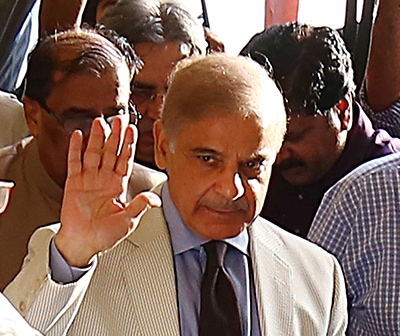Imran Khan, ousted by a parliamentary no-confidence vote, is replaced as Pakistan's Prime Minister by Shehbaz Sharif.

Shehbaz Sharif, the president of the Pakistan Muslim League Nawaz conservative party and leader of what had been the opposition, was elected prime minister of Pakistan unopposed after parliament’s vote of no-confidence ousted Imran Khan, the cricket star turned politician. With general elections due in August 2023, Sharif will have little time to prove he has what it takes to continue leading the country of 229 million.
His performance will be measured. Shehbaz Sharif, who is 70 years old, is younger brother to Nawaz Sharif, a three-time former Pakistani prime minister who remains very popular despite a mixed track record, jail time for corruption and a lifetime ban from holding public office.
A seasoned politician in his own right, Shehbaz—who joined and then partially inherited the family’s steel business as a young man—started his political career in 1988 in the Provincial Assembly of Punjab. He went on to enter the lower house of Pakistan’s parliament and, in 1997, became chief minister of Punjab. When a 1999 military coup deposed Nawaz’s second government, he and his family went into exile in Saudi Arabia. Following his return to Pakistan in 2007, he served two further terms as Punjab’s chief minister, earning a reputation as a skilled and effective administrator.
Now, Sharif faces challenges of a whole different magnitude. With inflation in double digits and the rupee at a historic low, things are likely to get far worse before they can get better.
“Sharif’s hardest task will be addressing the cost-of-living crisis caused by rising energy bills and the International Monetary Fund’s request to cut expenditures in order to revive a multibillion bailout program now on hold,” says Katharine Adeney, a professor at the University of Nottingham, specializing in elections and democracy in South Asia. “When in the opposition, his party criticized the government’s mismanagement of the economy; but now Sharif himself faces an uphill struggle to address the problem without alienating the population.”



